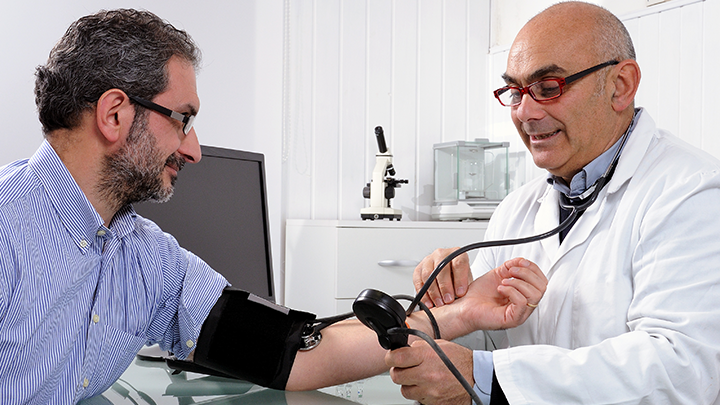High blood pressure (hypertension) affects one-quarter of Canadian and one-third of American adults; worldwide, it’s estimated at 40%. Globally, it is the leading risk factor for death and disability and it’s been increasing over the past few decades. Along with the increase in blood pressure in our population, pharmaceutical prescriptions have also increased to control the blood pressure. This is a terrible scenario.
In this article, I will outline the beneficial impact of making lifestyle changes on your blood pressure to show that we’re not all destined to high blood pressure, nor the range of medications to control it.
Primary vs. Secondary Hypertension
The basic distinction in high blood pressure is based on what’s causing it. Primary hypertension is idiopathic, meaning, we don’t know what causes it; it makes up over 90% of the total. It’s thought that the causes are environmental or genetic (ie, mostly diet and lifestyle). In secondary hypertension, there is a known cause (5-10% of the cases of total hypertension).
This form of high blood pressure tends to start suddenly and at a higher level. Common causes of secondary hypertension include: kidney disease, obstructive sleep apnea, thyroid and adrenal problems, medications (eg: birth control pills, cold medicines, pain medications), cocaine and amphetamines, adrenal gland tumours and alcohol abuse.
Why is High Blood Pressure Getting More Common?
It’s not just adults, hypertension is also increasingly found in our children. The predominant thought is that as our society gains more weight, makes poor dietary choices, continues to be sleep and exercise-deprived while also suffering from high stress levels with little exposure to nature, it is no wonder that our blood pressure gets affected. These factors tie in to how we choose to live our lives, our lifestyle.
Lifestyle Changes that Reduce Blood Pressure
Dietary lifestyle: it’s true, you are what you eat. What you eat affects your biochemistry, your hormones, the quality of your actual tissues and cells that make up your body.
Simply stated, eating a balanced diet with an emphasis on vegetables, fruits, whole grains/legumes and a moderate fat diet with minimal sweets and low-moderate salt intake will in most cases reduce your blood pressure. This way of eating, referred to as the ‘DASH diet’ (dietary approaches to stop hypertension), is a proven method to reduce elevated blood pressure.
Stress and relaxation lifestyle: when you experience stress, hormones are automatically released that increase your blood pressure (eg: adrenaline, noradrenaline, cortisol, etc.). If it’s a temporary stress, then your blood pressure returns to normal. However, if it is an ongoing stress, then your hormones stay higher for longer and so does your blood pressure.
Stress can also make you use up more minerals and vitamins which has it’s own detrimental effects. Do you take time to relax? Often the balancing factor to address stress is to make sure you build in relax time, particularly outdoors, where you can get your mind off of stressful thoughts. Meditation, guided imagery, relaxation breathing, tai chi are just a few examples of simple methods to into your daily relaxation practice.
Exercise habits and weight regulation: exercise tones your body’s muscles in a way that normalizes your blood pressure.
It also helps you to burn fat and regulate your insulin hormone level – this helps to improve your blood pressure. Several studies have found that combining a DASH diet and weight reduction strategies leads to even better blood pressure improvement.
Reduce your toxin exposures: you commonly hear about reducing alcohol consumption and smoking to benefit your blood pressure. Don’t stop there, reduce your chemical exposures overall. Air pollution for example is associated with increased blood pressure.
Taiwanese researchers published a 2017 study in Environment International comparing the effect of long term air filtration in households over the course of two years. They found that when particulate matter in the air was reduced by air filtration, the participants had lower blood pressure and lower blood markers of inflammation and oxidative damage.



Partager:
Joint Inflammation and Osteoarthritis
Tips for Healthy Weight Loss